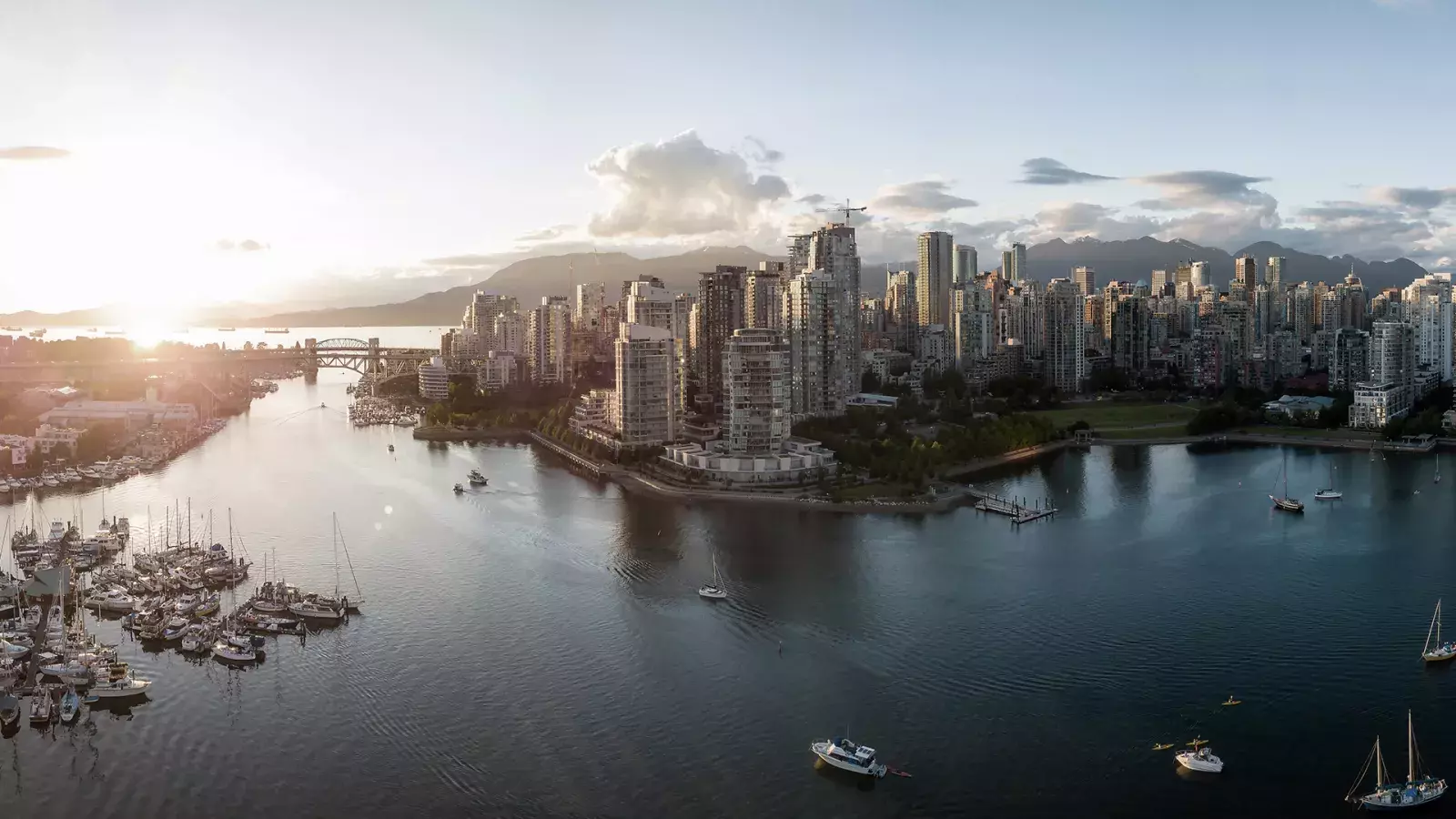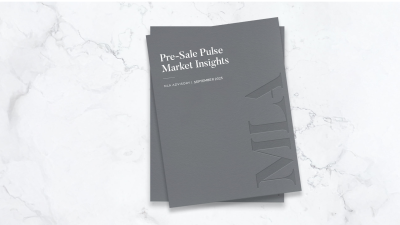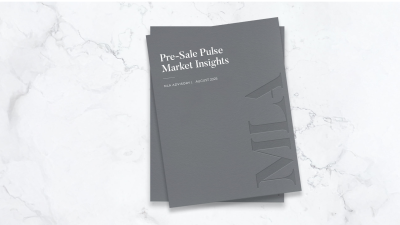The past year has come with its fair share of movement in Greater Vancouver's and Fraser Valley's real estate markets. A record-breaking 2021 carried good momentum into the new year, followed by a slowdown due to inflation and increased interest rates, and then closed off with new policies from newly elected municipal leadership. "Consumer sentiment was characterized by uncertainty and lack of confidence - this translated into many consumers waiting to buy a new home or investment," reflected Cameron McNeill, Executive Director of MLA Canada. The housing industry and consumers generally understand the long-term growth of the region's prosperity (driven by a stable economy and massive immigration). Yet, most people were waiting for the inflationary economic conditions and upward-trending interest rates to stabilize before making a buying commitment. Here, MLA Advisory looks back at the highlights and insights from 2022.
"Consumer sentiment was characterized by uncertainty and lack of confidence - this translated into many consumers waiting to buy a new home or investment." Cameron McNeill, Executive Director at MLA Canada
THE TAIL END OF A FAIRY TALE MARKET IN 2021
January 2022 was a seasonally strong month for Metro Vancouver's pre-sale market in particular. A lack of inventory in the resale market partly drove a solid 67% same-month sales absorption level. "Despite a dip compared to the year prior, January 2022 was the third most active January in the history of the Fraser Valley Real Estate Board," observed Brittany Reimer, Managing Broker of MLA Canada's Fraser Valley office. Resales were 35% above the average of the past five Januarys, which led to increased pricing. Compared to the prior January, detached homes and townhomes sales were down 31% and 37%, while condominium products were up 12%.
February saw 2,318 pre-sale homes come to market, with 59% absorbed within the month – an active market even for the time of year. "Despite the increase in active listings, we saw a historically low inventory environment throughout the Greater Vancouver and Fraser Valley regions persist in February," shared Ryan Lalonde, President and Partner of MLA Canada. Metro Vancouver continued to be a white-hot seller's market & Surrey City Centre saw historic pre-sale pricing. Meanwhile, rental vacancy rates returned to pre-pandemic levels, although Vancouver continued to have the highest rent costs in Canada.
A year after the record-setting March 2021, March 2022's strength held from the prior month and marked the fifth month in a row where same-month absorptions were above 50% in Metro Vancouver. New listings in the Fraser Valley continued to climb for the third consecutive month, helping to increase overall active inventory to levels not seen since the previous July and offering some supply relief. The BC Government announced a new 'cooling off period,' which was set to roll out to all resale listings as early as the spring. This occurred amid rising concerns about increasing interest rates, construction costs, and supply chain issues. Check out: MLA Canada's Q1 2022 Presale Market Report
INTENSE GLOBAL AND ECONOMIC PRESSURES FORM THE TALE OF TWO DISTINCT MARKET CYCLES
On April 13th, we saw the first 50-basis point rate increase to 1% since 2000, forcing homeowners and prospective homebuyers to re-evaluate their mortgages and finances. This was the first indication that the Bank of Canada intended to combat inflation aggressively to achieve a neutral policy rate by the end of the year. "As the market responded to rising interest rates and shifts in financial markets, same-month absorptions moderated to historical averages in April, achieving 30% by the end of the month," said Suzana Goncalves, EVP of Sales and Marketing at MLA Canada. "Fraser Valley sales dipped below the 10-year average for the first time in nearly two years." Simmering sales, in tandem with an increase in active listings, moderated the market in a way that was encouraging for homebuyers. Check out: 3 Macroeconomic Factors Affecting the Real Estate Market Right Now
"As the market responded to rising interest rates and shifts in financial markets, same-month absorptions moderated to historical averages in April, achieving 30% by the end of the month." Suzana Goncalves, EVP of Sales and Marketing at MLA Canada
British Columbia's real estate market officially entered a new phase in May 2022: a more balanced market. Across Greater Vancouver, Fraser Valley and Greater Victoria, the resale market continued to reconcile with the overarching financial pressures. Pre-sale activity continued to stabilize across Metro Vancouver in May, achieving 32% same-month absorptions. Prices in the Fraser Valley reduced faster than those in the Greater Vancouver area following 24 unprecedently intense months. Developers acted swiftly to respond to changing market demand by offering attractive incentive programs and increasing marketing efforts generally, leading to several successful launches. Construction costs began to affect pre-sale supply, and when combined with supply chain issues and rising interest rates, led developers to re-evaluate project launch timelines, with some choosing to delay.
"With the development life cycle of the typical condominium development project being up to four years, pre-sale continued to act as a strong asset class to those who wanted to lock in the current price point before additional rises to construction costs." Ryan Lalonde, President at MLA Canada
Stability continued from May into June, and consistency reigned supreme within the Metro Vancouver market, despite an added 100 basis points to the interest rate. Sales slowed by about 7% from the previous month in the Fraser Valley. However, as Lalonde shared, "with the development life cycle of the typical condominium development project being up to four years, pre-sale continued to act as a strong asset class to those who wanted to lock in the current price point before additional rises to construction costs". As a result, there was a significant downturn in new land acquisitions in June in Fraser Valley, with only one reported large land sale that month. This was a considerable change from the first quarter of the year, which saw an average of 30 low-high-density land transactions occur per month. Check Out: MLA Canada's Q2 Presale Market Report
MID-YEAR NARRATIVE CONFIRMS STRENGTH IN MARKET FUNDAMENTALS WHILE EXPOSING SOME OF ITS VULNERABILITIES
July was a month of rebalancing in British Columbia, with Greater Vancouver, Fraser Valley, and Greater Victoria reflecting more favourable buyer conditions. "While a seasonal slowdown is typical in the summer months, a slide in consumer confidence given the economic conditions resulted in a decline in sales for resale and pre-sale products," noted Goncalves. Same-month absorptions in pre-sales dropped 10% from the month before. Many developers held new project releases for the Fall of 2022 or Spring of 2023, restricting supply. The Bank of Canada increased its rate by another staggering 100 basis points, with global inflation rising to reflect the impact of the Russian invasion of Ukraine. In addition, construction supply issues continued, and strong demand for housing persisted.
"With the government actively drawing new residents to Canada, the influx of residents can only indicate upcoming pressure on demand." Cameron McNeill, Executive Director at MLA Canada.
After several months of declining sales across Metro Vancouver, the dust finally settled in British Columbia's real estate markets. Though still falling below the 10-year average, resales in August improved from a historical perspective relative to what we saw in June and July. As a result, buyers began to re-examine the market, looking to find new opportunities as supply-demand metrics improved. At the end of the month, Canada had already accepted 300,000 new permanent residents in the year to date against an announced goal of 430,000 total for 2022. "With the government actively drawing new residents to Canada, the influx of residents can only indicate upcoming pressure on demand," shared Cameron McNeill, Executive Director and Partner at MLA Canada. Check out: Resiliency of the Vancouver Market
September saw a significant increase in inventory and same-month absorptions, a positive signal for the market. Developers working in an ever-tightening landscape were more strategic about when and how they brought their products to market and maximized their launches with creative marketing programs. Buyers in the Fraser Valley became more selective, prioritizing homes with great locations, promising specs, and a price point that fit their capabilities with the rising interest rates. Outside of Metro Vancouver, Kelowna was recognized as one of the fastest-growing metropolitan areas in Canada by population, experiencing a population and development boom. Check Out: MLA Canada's Q3 Presale Market Report and Buying in a Changing Market
RADICAL CHANGE IN MUNICIPAL GOVERNMENT, POLICIES, AND THE BANK OF CANADA CLOSE THE CHAPTER ON 2022
"October saw municipal elections throughout the province at a time when housing supply and affordability issues were at the forefront of voters' and candidates' minds," said Lalonde. This election also harkened to a change in the City of Vancouver's City Council. Ken Sim was elected as the new mayor, and all his ABC council members voted to create a super majority on the council. Although conditions were relatively stable in the Fraser Valley, price and sales activity shifts were less than the months prior. However, by the end of the month, markets responded positively in October when the Bank of Canada opted for a 50-basis point increase rather than the 75 basis points economists had predicted.
In combination with an already challenged market, typical seasonal shifts kept resale activity below historical averages in Metro Vancouver. November's resales in Greater Vancouver were down 15.2% from October and 52.9% from the year prior. However, a 10 to 12% decline is typical from October to November, and resales were historically elevated in 2021 from buyers seeking to lock in low-interest rates. Noted Reimer, "Fraser Valley experienced similar hesitation ahead of the holiday season, with a 6.9% decline from the month prior and a 57.5% drop from the year prior." In addition, the provincial government passed new legislation that bans all rental restrictions in strata buildings, which was perceived as leading to a boost in condominium value.
Yet, as the thrilling storyline of 2022 comes to a close in December, there are positive indications that the pace of economic tightening is beginning to slow in Canada and providing some relief. Economists predict that February will mark a positive turning point for the current conditions. As a result, developers, homeowners, and homebuyers should be tentatively hopeful for a more friendly environment as we move into and through 2023.
AND THAT CONCLUDES 2022…
The 2022 real estate market performance was an adventure with anything but a storybook ending. Instead, the year unveiled itself as an allegory - events unravelling and revealing a deeper meaning. The storyline confirmed the strengths in its market fundamentals while exposing some of its vulnerabilities to external pressures that played a role in causing a clear divide with two distinct market cycles represented from beginning to end.
Stay tuned for the 2023 MLA Intel Report early in the new year for more insights into 2022's narrative and what we expect from the year ahead.



